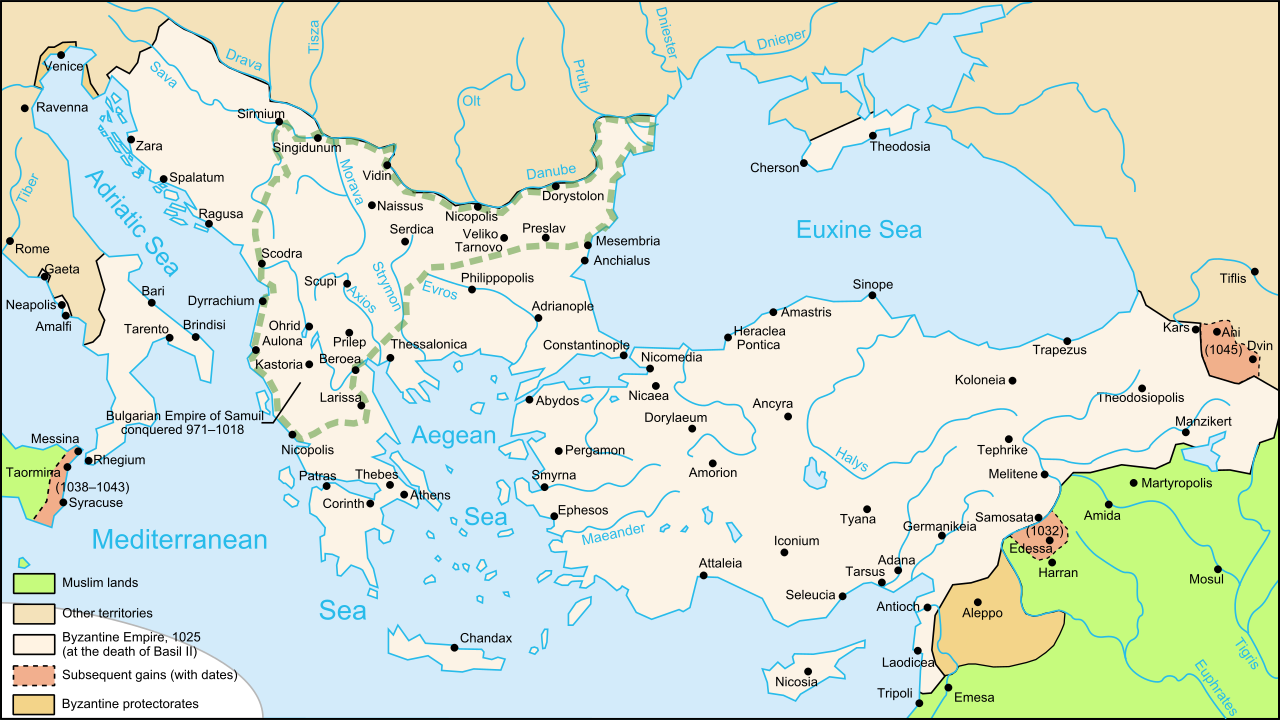Echoing the theme of my post Mastering The Tides of the World.
— Varangian Chronicler (@Varangian_Tagma) March 24, 2023
In 1025, Basil II (The Bulgar Slayer) died, leaving the Byzantine Empire in seeming good health, dominating both the Balkans and Anatolia.
Empire at the death of Basil II

The Arab threat, which placed the very existence of the Empire at risk from the mid-7th century until the mid-9th century had abated. Over the past century, the Byzantines had reconquered the eastern portions of Anatolia and retaken Antioch and the approaches to the Holy Land, reducing the adjacent Arab principalities to dependencies.
In the Balkans, Basil had completely obliterated the Kingdom of Bulgaria, another constant threat for the past three centuries. The empire's position in southern Italy was strengthened and the reconquest of Sicily appeared within reach.
The Empire was strong, both militarily and economically.
Then a succession of weak emperors followed, while Seljuk Turk invaders from Central Asia entered Anatolia. In 1071 the Empire suffered a devastating defeat at Manzikert. Over the next ten years, internal strife and the advance of the Turks led to the loss of most of Anatolia, a Roman territory for a thousand years. Despite minor resurgences over the next century, the Byzantines were on the defensive, finally calling on the Western European adventurers of the Fourth Crusade to rescue them. That "rescue" turned into the Latin assault on Constantinople and its sacking and fall to fellow Christians in 1204. Though the Byzantines recovered their capitol in 1261, the reassembled and more geographically limited empire was a shadow of its former self, explaining why it never became Lebronstantinople.
No comments:
Post a Comment